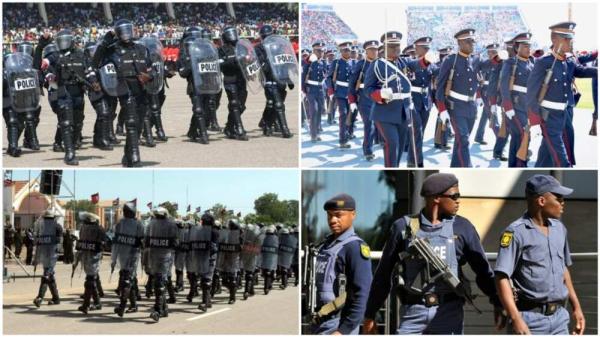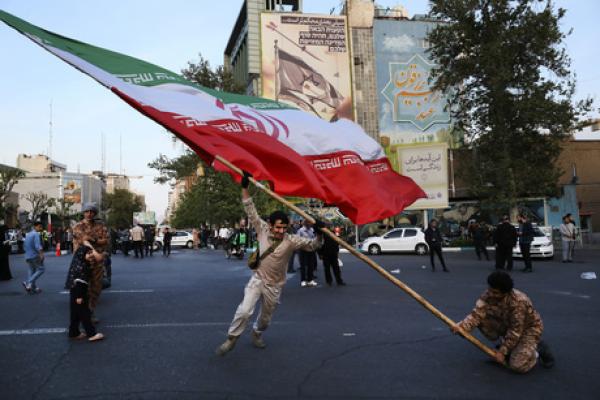
Belgian soldiers patrol outside the European Council headquarters in Brussels
EU foreign ministers meet in Brussels on Monday to discuss the terrorist threat from homegrown radical Islamists and jihadist fighters returning from combat in the Middle East.
European countries are on high alert in the wake of deadly attacks in France and a wave of arrests in Belgium, where police foiled a suspected terrorist plot last week.
Ministers were expected to debate a range of options ahead of a planned summit of EU leaders on February 12 dedicated to fighting terrorism.
Police in France, Belgium and Germany have carried out dozens of arrests in recent days amid efforts to root out jihadist cells in the wake of the deadly attacks on satirical weekly Charlie Hebdo and a kosher supermarket in Paris.
Belgian authorities have dismantled a group allegedly plotting to kill police, but the cell’s suspected mastermind, Abdelhamid Abaaoud, is still on the run.
Five people have been charged with “participating in the activities of a terrorist group”, while federal prosecutors have said they will seek the extradition of a sixth suspect who was arrested in Greece on Saturday.
Investigators have not established any links between the Belgian arrests and the terrorist attacks in France.
Cooperating with Arab states
Belgium’s Foreign Minister Didier Reynders said the spate of arrests underscored the importance of information-sharing between EU countries.
“We have to exchange information in Europe and outside Europe to really follow what is going on and to prevent any acts that could be launched on our territory,'' he told his European counterparts at Monday’s meeting.
The ministers were expected to resume talks on the establishment of a European-wide database of passenger travel information, which has stalled amid concerns it may infringe on civil liberties.
Federica Mogherini, the EU’s foreign policy chief, said cooperation should be extended to Arab countries. Speaking ahead of talks with Arab League Secretary-General Nabil Al-Araby, Mogherini pleaded in favour of an “alliance” with Arab states to combat terrorism.
Echoing her views, British Foreign Secretary Philip Hammond stressed the need to work with Muslim countries, who “continue to be in the front line”.
Anti-Muslim march banned
The terror alert has stoked fears of a backlash against European countries’ Muslim populations, which are already the target of discriminatory attacks.
Police in Germany have banned a rally by the anti-Islamic PEGIDA movement planned for Monday in the eastern city of Dresden, citing a "concrete threat" of an attack against its leadership.
Local media said PEGIDA's most prominent leader Lutz Bachmann, had been threatened by the Islamic State group based in Iraq and Syria.
The PEGIDA marches have grown steadily since they began in October and drew a record 25,000 people last Monday in the wake of the Paris attacks that left 17 people dead.
The anti-Islamic rallies have spread to other European countries as well, with the first Danish PEGIDA march to take place in Copenhagen on Monday. Organisers said they were expecting some 300 people.
Separately, a French court on Sunday prevented a rally by anti-Islamist groups in Paris on the grounds that they were promoting Islamophobia.
Charlie Hebdo protests
With tensions heightened, the second gunman in the attack on Charlie Hebdo was buried discreetly in an unmarked grave near Paris late Saturday in the hope that it would not become a pilgrimage site for radical Islamists.
Chérif Kouachi, one of two brothers who attacked satirical weekly Charlie Hebdo on January 7, was buried in Gennevilliers, a day after the funeral of his older brother Said in the northeastern city of Reims.
The family, including Chérif Kouachi's widow, kept away from the funeral, the mayor's office said.
The Kouachi brothers, who were linked to al Qaeda’s Yemeni branch, claimed to have targeted Charlie Hebdo in response to the weekly’s caricatures of the Prophet Mohammed, Islam’s holiest figure.
The survivors of the attack have responded by publishing another caricature in last week’s issue, showing the prophet under the headline “All is forgiven”.
The publication has sold millions of copies in France and abroad, and prompted fierce protests in many Muslim countries.
At least 10 people were killed and several churches were torched over two days of unrest in Niger, while angry crowds burned French flags and effigies of France’s President François Hollande in Pakistani cities.
(FRANCE 24 with AFP)






















